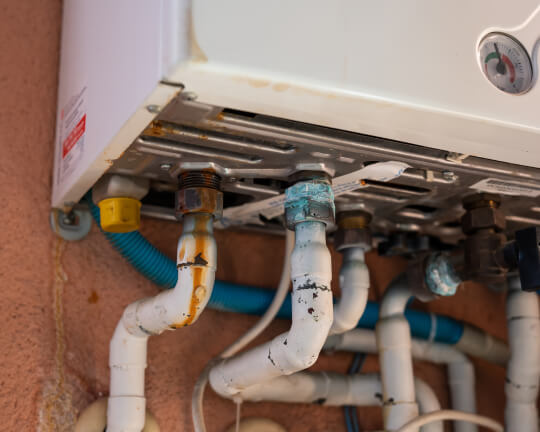Understanding your boiler
How long do boilers last?
19 Apr 2024 • 3 minutes


In our experience, boilers can last anywhere between 10 and 15 years old. The lifespan of your boiler can depend on a number of factors, including the scale at which it is used and the model and brand of system that you select to have installed.
As with most boilers, modern combi boilers should last up to 15 years if kept well maintained with an annual service. This can depend on the quality and chosen model of your boiler, so be sure to choose your boiler model carefully and read reviews to check for regular faults.
Boilers generally often come with a warranty or guarantee, which protect you against the cost of faults or repairs. These warranties only remain valid if you have an up to date boiler service history, and usually only cover a certain number of years. Always check your warranty details before making a decision about updating your old boiler.
Your boiler plays a key role in your household. It keeps you and your family warm and can influence how comfortable you are in your home. Below we list a few factors that you should consider when thinking about whether your boiler can meet your needs long-term.
Lastly, if the conditions of your home have changed significantly since your boiler was installed, the boiler may no longer be suitable to perform efficiently – it could struggle to supply the amount of heat and hot water that you require.
For example, if you have had added more bathrooms or rooms through a house extension or loft conversion, then your boiler may require more power to operate to your new demands. Overworking a small boiler which was not designed to cope with these new high demands may cause the boiler to degrade more rapidly than usual.
If you have had or are considering additional bathrooms, rooms or radiators in your home, it is best to keep in mind the impact this could have on your boiler and central heating system.
Older boilers often need more regular repairs and can provide less reliable heating and hot water if not maintained and serviced. Some key signs to look out for include:
Find out more about the tell-tale signs you may need a new boiler in our guide.
If your boiler is showing its age, you may be thinking about getting a new one. We’re working together with BOXT, one of the largest boiler installation companies in the UK, to help you find the best boiler for your home.
BOXT makes choosing the perfect new boiler for your home easy with a fixed price quote on your screen in just 90 seconds.
* Source: energysavingtrust.org.uk Saving calculated when replacing G rated with A rated boiler in a detached house. Annual saving of up to £540 has been divided by 12 months to illustrate the monthly amount.
Our help & advice articles cover Plumbing, Home heating, Electrical, Energy-saving and Home maintenance.